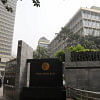Integrating Bangladeshi diaspora with our growth story

As per the International Organization for Migration (IOM), Bangladesh boasts a vibrant diaspora of over 7.4 million. These Bangladeshis are more than just expatriates; they are an untapped reservoir of knowledge, skills, and entrepreneurial spirit, waiting to be harnessed for the nation's economic prosperity.
While Bangladesh has long relied on its diaspora's remittances – a vital second source of foreign currency, accounting for 4.76 percent of GDP in 2022-23 – the true potential lies in fostering deeper engagement.
Despite its impressive remittance inflow amounting to $21.5 billion in 2022, Bangladesh remains the third-largest remittance recipient in South Asia, trailing behind India and Pakistan, which received $111.2 billion and $29.5 billion, respectively, according to the World Bank. This scenario draws attention to a critical aspect: Bangladesh's remittance base predominantly comprises low-skilled workers, primarily concentrated in the Gulf region.
According to the Bureau of Manpower Employment and Training, in 2021, some 73.57 percent of Bangladeshi migrants were unskilled labourers and almost 80 percent of these migrants are settled in the Gulf region.
India's remittance influx in recent years derives from a growing pool of high-skilled migrants to developed nations like the US, the UK, and Singapore. The Migration Policy Institute's analysis showed that the Indian diaspora in the US comprises around 4.9 million residents who were either born in India or reported Indian origin.
In 2021, a staggering 80 percent of these Indian immigrants aged 25 and above held bachelor's degrees, compared to just one-third of the overall foreign-born and native population in the US. This trend continues with advanced degrees, where nearly half of Indian immigrant adults possess graduate or professional qualifications, substantially exceeding the national averages (15 percent of foreign-born and 13 percent of US-born adults). Such academic prowess positions them as highly sought-after talent in the American workforce.
Gone are the days of Indian migrants solely occupying low-skilled jobs in the Gulf. Empowered by the Skill India initiative and equipped with the technical and soft skills desired by global giants, they now command respect in fields like AI, machine learning, and cloud computing.
The impact of diaspora communities extends far beyond their technical prowess and skillsets. Their sheer numbers, growing political influence, and deep cultural ties to their homelands influence international relations and foreign policies in profound ways.
The Hispanic diaspora in the United States, the nation's largest minority group with a staggering 19.1 percent of the population, exemplifies this dynamic influence.
Harnessing Bangladesh's diaspora demands a strategic rethinking that moves beyond just receiving money and towards a deeper, more strategic engagement. Upskilling our domestic workforce, in partnership with private and diaspora resources, can ensure their global relevance. Formalising informal remittances – those currently bypassing official channels – is crucial.
According to the Household Income and Expenditure Survey 2022, only 20.95 percent of remittances currently fuel investment, which was 26.06 percent in 2016. Imagine the impact if we could mirror India, where NRIs invest more readily thanks to streamlined procedures and special incentives.
Bangladesh must actively engage its diaspora through targeted initiatives. Creating a dedicated diaspora investment fund, hosting investor summits, and establishing mentorship programmes can bridge the information gap and foster collaboration.
Leveraging digital platforms to connect diaspora professionals with local businesses and startups will spark innovation and cross-border partnerships. Moreover, recognising and celebrating the achievements of diaspora entrepreneurs can inspire others to follow suit.
By proactively addressing challenges and creating a welcoming environment, Bangladesh can transform its diaspora from a remittance source into a dynamic engine of economic growth.
The author is an economic analyst

 For all latest news, follow The Daily Star's Google News channel.
For all latest news, follow The Daily Star's Google News channel. 








Comments